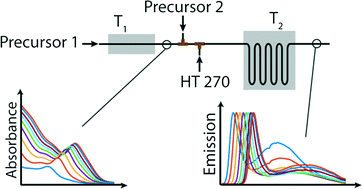
The next event of the IMRET “International Conferences on MicroREaction Technology” conference series will be held in the historic city of Beijing, China in September 12-14, 2016.
IMRET14 will be hosted by Tsinghua University, and co-hosted by Dailian Institute of Chemical Physics, Chinese Academy of Sciences. The IMRET is a scientific conference in the field of micro process engineering and the sciences of microreactors that started in Frankfurt am Main, Germany in 1997. Since then, thirteen IMRET conferences have been organized by various well recognized societies and institutes. By organizing IMRET14, the committee aims to strengthen the multidisciplinary communication in the field of micro-process technology, and to facilitate its integration into everyday practices throughout the world by delivering the latest knowledge and making it available for the entire community.
Find out more and register now.
Scientific committee
Darvas Ferenc, Flow Chemistry Society, SUI
Peter Seeberger, Max Planck Institute, GER
Aaron Beeler, Boston University, USA
Claude de Bellefon, CNRS Lyon, FRA
Shinji Hasebe, Kyoto University, JPN
Volker Hessel, Technische Universiteit Eindhoven, NED
Klavs Jensen, Massachusetts Institute of Technology, USA
C. Oliver Kappe, University of Graz, AUT
Gunther Kolb, Fraunhofer ICT-IMM, TU/e, GER/NED
Kim Dong-Pyo, POSTECH, KOR
Holger Löwe, Johannes Gutenberg University Mainz, GER
Michael Ölgemöller, James Cook University, AUS
Jürgen Brandner, Karlsruhe Institute of Technology, GER
Jun-ichi Yoshida, Kyoto University, JPN
Timothy F. Jamison, Massachusetts Institute of Technology, USA
Steven Ley, University of Cambridge, GBR
Ian Baxendale, Durham University, GBR
Dominique Roberge, Lonza Group Ltd., SUI
Steven A Soper, The University of North Carolina, USA
Guangsheng Luo, Tsinghua University, CHN













